Black Cherry - A Homestead Danger
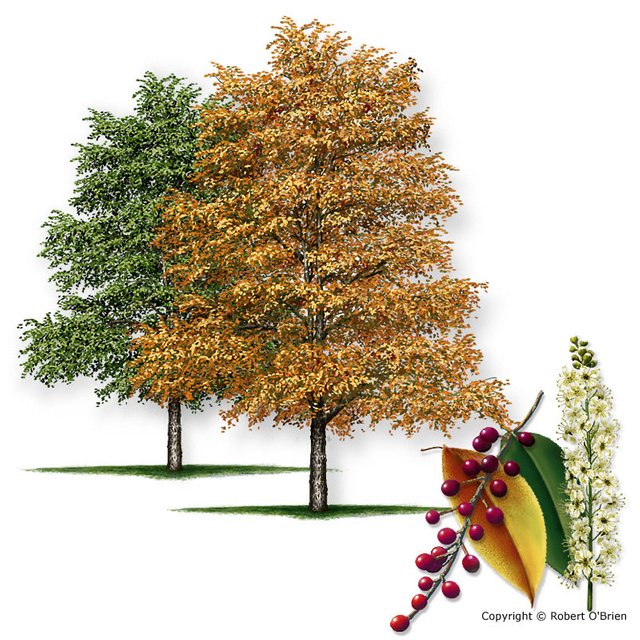
Being a ranger and horsemanship major in college, where I was required to study dendrology AND equine healthcare, I got this info on two fronts, and therefore somewhat pounded into me. I realize that some out there may also already know this, but I have met some new to owning horses and/or livestock that did not, which is why I'm sharing this important info.
This particular tree is the Black Cherry (Prunus serotina) or also known as Wild Cherry to some. It is a member of the Rose family, believe it or not.
While it can be quite beautiful to look at and fragrant when flowered, it can be just as dangerous to your animals.
They can be an invasive species as well, found in both open fields or woodlots, growing up to 60' tall and 30' in width and is often home to the Eastern Tent Caterpillar (also known to be a cause of Mare Reproductive Loss Syndrome).
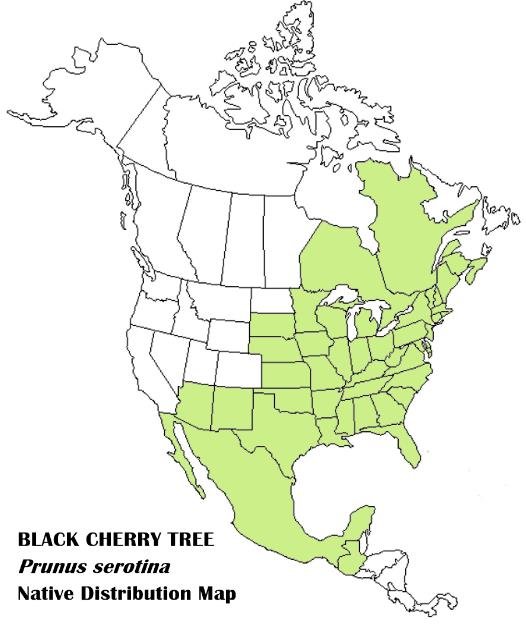
What is so toxic about the Black Cherry anyway and which parts of the tree?
This particular tree contains a type of cyanide that is in the twigs, leaves, seeds and bark but becomes particularly potent in the WILTED leaves. As mentioned above, even the caterpillars that make this tree their home, have been suspect in aiding in a major problem with pregnant mares, due to being ingested upon grazing .
(http://www.jarvm.com/articles/Vol2Iss2/TOBINJARVMVol2No2.pdf ).
How much does it take to harm them?
It is said that as little as 1-4lbs of wilted leaves can drop a horse or cow. I've heard MUCH less than that, so one can never be too careful.
What about the caterpillars though? Can I still use them on my homestead?
Knowing that some use the tent caterpillars for chicken feed, but also have livestock, should not be an issue unless they graze the same areas you place the caterpillars. I am unsure if they affect other livestock pregnancies like they do horses, but being that the tree parts affect other livestock the same way, it would stand to reason that the caterpillars may as well. Just a thought.
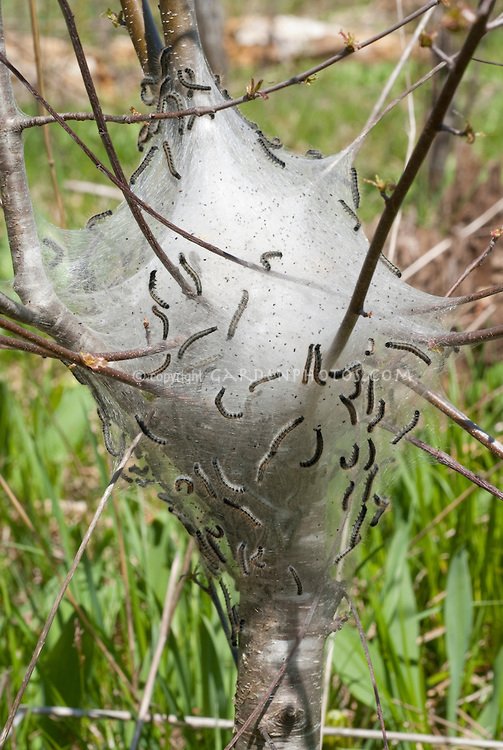
What should I do about the trees then?
Make sure your livestock are not grazing where they grow. Try to place them in pastures away from them. If you aren't using the caterpillars and could use the cash, you might even consider selling the trees to a lumber mill, as cherry wood is worth quite a bit bc folks like the look of it. 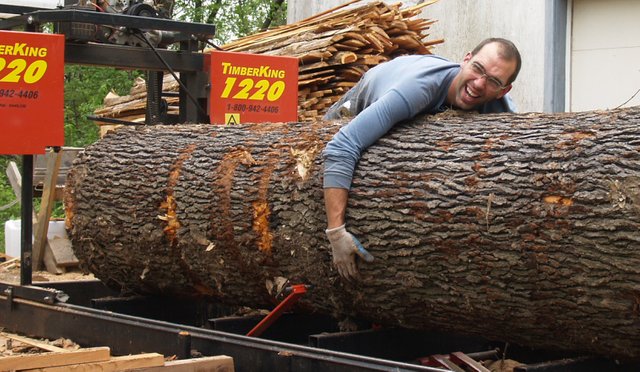
(pic courtesy of Wunderwoods)
If you would like to keep them and you can keep the livestock away from that area, all you have to look out for is wilted leaves blowing their direction. Many horses/cattle can smell it just fine , and avoid it, unless they have frosted or mixed with more potent smelling leaves/grasses they are grazing. Then, they may have more difficulty in avoiding it while grazing. A good thing would be to simply rake up the wilted leaves on a regular basis and avoid the possibility altogether.
Below, I am placing some pics to help you better identify this tree on your homestead.
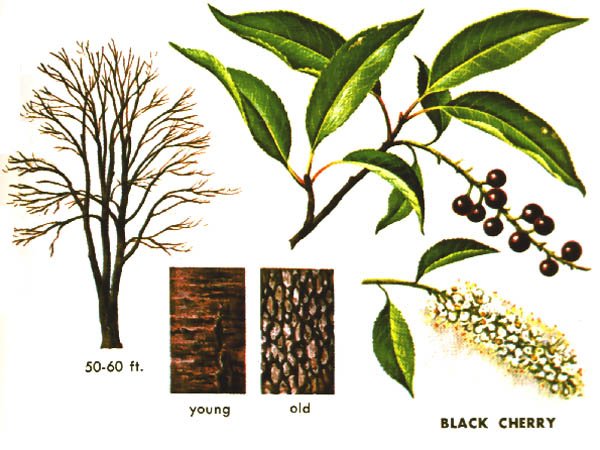
Mature Black Cherry bark- notice the 'burnt potatoe chip' look to it? This makes it very noticeable among other tree barks.
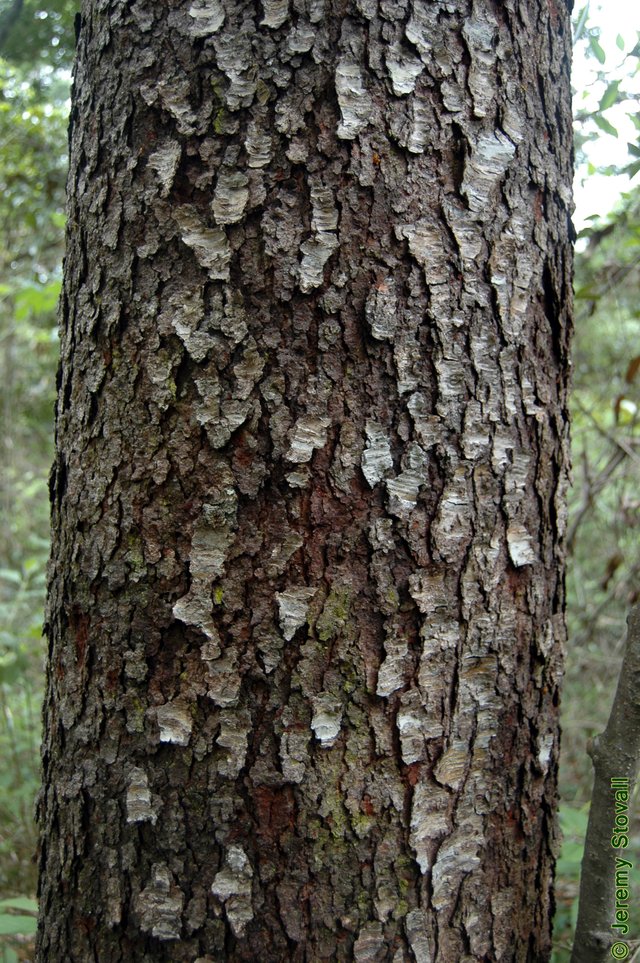
Young Black Cherry bark- notice the little lines on the bark (lenticels)? This helps greatly in identifying a younger Black Cherry tree.
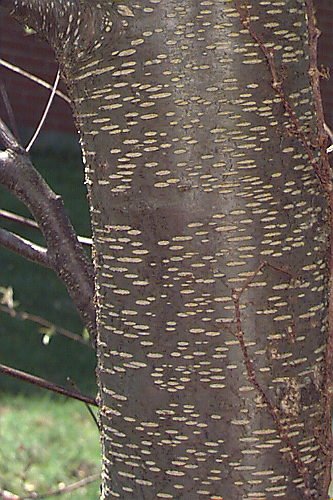
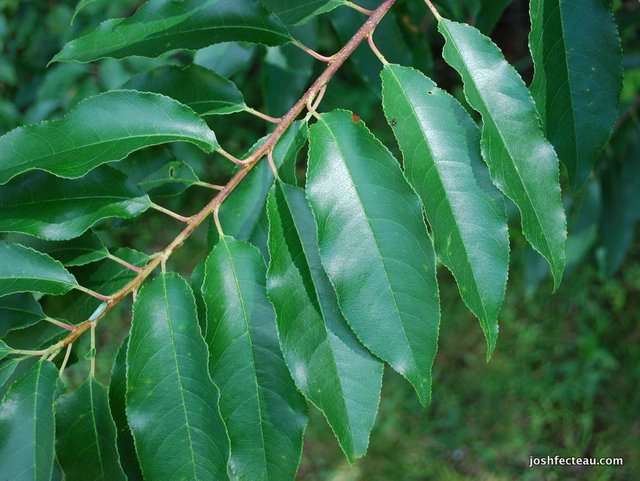
I pray this article, along with the pics, helped you in some way.
If you have any questions, please feel free to ask. I am more than happy to help. Your state DNR site will also have info on this tree, most likely, if it's within the growing zone.
@driva has voted on behalf of @minnowpond.
If you would like to recieve upvotes from minnowponds team on all your posts, simply FOLLOW @minnowpond.
@minnowpondblue has voted on behalf of @minnowpond.
If you would like to recieve upvotes from minnowponds team on all your posts, simply FOLLOW @minnowpond.